IEEE Europe & Africa Blockchain Local Groups

On-demand version coming soon
Agenda
Virtual Event • 8 September 2021 at 3-7pm CET
15:00-15:10 Intro
Ramesh Ramadoss, IEEE Blockchain Initiative
Catarina Reis, Region Lead, IEEE EMEA Blockchain Groups
Speakers
15:10-15:30 Raymond Forbes, Chair of the ETSI ISG ENI and Vice-Chair of the ETSI ISG PDL, "Distributed Ledger and block-chain in ETSI"
15:30-15:50 Alex Norta, Tallinn University of Technology, "Blockchain & IoT Security"
15:50-16:10 Latif Ladid, University of Luxembourg, "Blockchain & Cloud Food Supply Chain"
16:10-16:30 Miguel Pupo Correia, Universidade de Lisboa, "Blockchain Cross-Borders: The European Blockchain Services Infrastructure"
16:30-16:40 Q&A
16:40-17:00 Simon Barducci, CEO at Layer Exchange, "Can you bail out investors of cryptoassets?"
17:00-17:20 Arturs Kempelis, Andrejs Romanovs, Riga Technical University, "Blockchain-driven Mobility as a Service"
17:20-17:40 Matthew Doty, Casper Labs, "Highway, the first practical Casper consensus implementation"
17:40-18:00 Ihor Vlasov, CEO & Co-founder of KYC-Pay.com, "A cross-border marketplace for Banks, Fintech, Blockchain, and Legal service providers"
18:00-18:10 Q&A
18:10-18:30 Nicolae Goga, Ramona Popa, University Politehnica Bucharest, "An Intelligent HL7 Application based on Questionnaire Generation and Editing"
18:30-18:50 Joaquín Lago Pérez, Electoral Processes, Minsait (Indra), "Implementation of Blockchain in an Online Voting Solution"
18:50-19:10 Emmanuel Bertin, Orange, "Blockchain for Telecom services"
19:10-19:30 Khaled Salah, Khalifa University, ""Blockchain and Digital Twins: Trends and Challenges"
19:30-19:40 Q&A
19:40-20:40 Panel on Legal & Regulatory Framework in Europe
Moderator: Alex Norta, Tallinn University of Technology
Speakers:
Anna-Maria Osula, Guardtime/Tallinn University of Technology
Anne Veerpalu, TECH x LEGAL Law Firm
Cyril Onwubiko, IEEE European Public Policy Committee (EPPC)
Michael Kolain, German Research Institute for Public Administration
Speakers
Educated at Loughborough University of Technology between 1977 and 1984, he joined Plessey Telecommunications where he worked on Software Engineering and Analysis. Since 1990 he has worked on network development in the area of Intelligent Networks and the standardisation thereof. He has chaired the NGN Protocols in ETSI including the IMS adaptation to fixed networks and the Common IMS programme. He was elected as ETSI TC M2M Protocols WG Chairman. Also, he has been actively involved in the ITU-T Smart Focus Group.
He was appointed as chairman of the M2M Protocols activity in oneM2M the global Standards Partnership Project. Also, he was appointed as Leader of the M2M Service Enablement & Utilities Standardization. Currently, he is working for Huawei Technologies to lead and chair the ETSI ISG ENI (Experiential Networked intelligence) and ETSI ISG PDL (Permissioned Distributed Ledger) Vice-Chairman.
Abstract: Distributed Ledger and block-chain in ETSI
This session will address the aims, scope and work-items of ETSI permissioned distributed ledgers (ISG PDL) and the relationship of immutable block chain records to eHealth and epidemic/pandemic responses.
Associate Professor, Department of Software Science, Tallinn University of Technology
Dr. Norta is currently an associate professor at the Department of Software Science where his recent research focus is on blockchain technology for enabling novel e-governance models that involve many collaborating organizations. His research background is interdisciplinary comprising cross-organizational business-process automation, multi-agent systems, security, agile software engineering, blockchain-system engineering, e-learning, the legal relevance of smart contracts. In conducting action-design research, he has been involved in numerous blockchain startup research. For example, he published the founding paper for qtum.org. He has also published many blockchain papers in diverse areas such as banking the unbanked, insurance issuance on blockchains, e-procurement on blockchains, multi-factor identity authentication with a blockchain-based distributed application. Recently he has developed a novel methodology for the design of distributed blockchain application Further pertaining to blockchain relevance, Alex has co-supervised an award-winning PhD thesis defended at the University of Goettingen about the novel machine-to-everything (M2X) economy in which it is assumed that self-driving cars participate in an open socio-technical ecosystem. His specific supply chain experience reaches back to his time as a PhD student at the TU-Eindhoven where he investigated the automation of cross-organizational business processes for truck production. As a post-doc at the University of Helsinki, he developed formalized lifecycle management for the setup, enactment, and orderly termination of such automated cross-organizational business-process collaboration. This keynote-speech paper summarizes conceptually the publication results that map into blockchain technology and have been further developed at the Department of Software Science. Alex was nominated as the most successful PhD supervisor of the IT School in 2020 and in 2021 he won also the best-paper award of the IT school in the category for social-science category for his journal paper about e-participatory budgeting.
Abstract: Blockchain Technology for Secure Internet-of-Things
The presentation introduces the intersection between smart-contract blockchain systems, internet of things (IoT) and security and the problems and opportunities that emerge. First, I address the current trends in IoT and the rising importance for business. Next. I introduce the exciting topic of blockchain technology and the extension towards smart contracts. Finally, the main properties of security are addresses. After the elementary introductions, the keynote investigates the intersections between IoT and blockchain, IoT and security, and blockchain and security. This intersection investigation reveals problems that open up scope for future research work. The keynote culminates in the presentation of various industry applications in the supply chain domain.
Founder & President, IPv6 FORUM (www.ipv6forum.org); Member of 3GPP PCG (Board) (www.3gpp.org); IEEE 5G Future Networks Initiative Steering Committee Member; IEEE IoT Initiative Steering Committee Member; Emeritus Trustee, Internet Society – ISOC (www.isoc.org); Member of IEEE Blockchain, IPv6 Ready & Enabled Logos Program Board (www.ipv6ready.org); Chair, ETSI IPv6 Industry Specification ; Member of Future Internet Forum EU Member States (representing Luxembourg)
Research Fellow at the Secan-Lab, University of Luxembourg.
Abstract: Blockchain and Cloud enabling Food Supply Chain while GDPR-Compliant
Blockchain and Distributed systems have always presented complex challenges, and technology trends are in many ways making the software designer's job more difficult. In particular, today's systems must successfully handle: - Privacy: Regulations such as the General Data Protection Regulation (GDPR) for Europe and the California Consumers Privacy Act (CCPA) require much stronger security for personal data, and that system owners must delete all personal data based on a user's request or completion of a transaction. - Access control complexity: Modern access control often uses rules that depend on data from sources outside the organization, requiring high performance networks with data integrity guarantees. - "Internet of Things" and ubiquitous sensor nodes: Data sources can include building sensors, smart watches, medical sensors, and many other sensor types. In short, systems must handle more data from disparate sources, and at the same time be responsive to new and emerging privacy and data retention requirements. Recent developments in distributed ledger technology (DLT) have been applied to some of these challenges, with only limited success. A key problem is the immutability property of blockchain (the most prominent form of DLT), which conflicts with the requirement to allow deletion of user data. There are many critical use cases in the health sector and the food supply sector. The Cities2030 project will look at the food supply chain with end to end tracking and tracing from the farm to the fork using Blockchain with compliance to GDPR. cities2030.eu
Miguel Correia is a Full Professor at Instituto Superior Técnico (IST), Universidade de Lisboa (ULisboa), in Lisboa, Portugal. He is coordinator of the Doctoral Program in Information Security at IST. He is a senior researcher at INESC-ID, and member of the Distributed Systems Group (GSD). He is co-chair of the European Blockchain Partnership that is designing the European Blockchain Services Infrastructure (EBSI). He is a member of the Board of Técnico+ and a non-executive member of the Board of Associação .PT. He has been involved in several international and national research projects related to blockchain and cybersecurity, including the DE4A, BIG, QualiChain, SPARTA, SafeCloud, PCAS, TCLOUDS, ReSIST, CRUTIAL, and MAFTIA European projects. He has more than 200 publications and is Senior Member of the IEEE.
Abstract: Blockchain Cross-Borders: The European Blockchain Services Infrastructure
Blockchain and distributed ledger technology are overcoming a period of exploration and use cases to become adopted by companies to solve real problems that require distributed trust. This talk will present the European Blockchain Services Infrastructure (EBSI), a major European initiative that aims to support cross-border services. The initial focus of the EBSI is public services, but the objective is to expand it to private applications.
Simon Barducci is CEO at Layer Exchange where he leads the development of a new generation of exchange called a DEX. He is also a committee member of the IEEE UK & Ireland Blockchain Group which coordinates educational seminars and webinars. Previously, he worked as the Director of Engineering in the Tezos Japan Foundation on the back of his work with clients and vendors in institutional banking in Japan. Later, he would collaborate on blockchain projects with Japan Financial Services Authority (JFSA) and Ministry of Economy, Trade and Industry (METI). As an entrepreneur, he started lptap.com where he works as a Solutions Architect offering design advice on securely running dapps, applications that run on blockchains, or maintaining infrastructure for validating blockchains. He also developed a project aiming to improve IDEs for the Tezos blockchain. Please feel free to contact him here: twitter.com/barducci
Abstract: Can you bail out investors of cryptoassets?
Recent collisions in regulation have occurred over the definitions of actors in blockchain systems. This has demonstrated the work to be done in understanding not just component parts of blockchain systems but what it means holistically to applications. This presentation will consider a number of cases and attempt to assess where the breakdown occurs. Certain narratives make sense within the context of traditional finance but cannot be easily applied to cryptoassets for a number of reasons. Finally, we will attempt to answer the hypothetical question of whether you can bail out investors of cryptoassets and explore the paradoxes of consumer protection within this market.
Computer Science and Information Technology PhD student at Riga Technical University (Latvia). Works as a lecturer and has over 5 years of experience in software engineering working in various IT projects in Europe. In 2021 Arturs obtained a Master's degree in Engineering in Information Technology in which he did research on various sensors and technologies in designing an IoT network to facilitate the food production process in agriculture. The IoT network was designed and developed completely with open source and open hardware prototyping devices. Within the research Arturs also developed a time series forecast machine learning model, to determine how the frequency of sensor Data acquisition and training, testing sets affect the accuracy of the model and the quality of data. Arturs has a strong motivation and genuine interest when doing research in computer science and is also participating in grant programs at university to help commercialize his ideas. His research interests centre around use cases of IoT, Blockchain and Machine Learning Technologies in precision agriculture and other fields.
Associate Professor and Senior Researcher at the Information Technology Institute, Head of Department of Modelling and Simulation, Riga Technical University (Latvia). He has over 30 years academic and professional experience developing 50+ computerized information systems for state and private business worldwide. His professional interests include modeling and simulation, cybersecurity, blockchain, IT governance, integrated IT in logistics and supply chain management, health care, as well as education in these areas. Author of 100+ textbooks and papers in scientific journals and conference proceedings in the field of Information Technology, organized and participated in over 60 international scientific conferences, as well as in numerous national and EU scientific and R&D projects. He is an expert of the Latvian Council of Science, senior member of IEEE, ISACA and LSS, chair of IEEE R8 Chapter Coordination Subcommittee, chair of Latvia Blockchain Group.
Abstract: Blockchain-driven Mobility as a Service
The speech will give a general overview of the upcoming project aimed to develop an innovative blockchain-driven public-private cooperation platform to incorporate upscaling sustainable mobility practices as a consistent modal shift strategy from individual cars to achieving sustainable, multimodal transportation. Decentralized blockchain technology has the huge potential to provide effective cooperation platforms for various public and private providers of mobility services and can improve the urban mobility system and reshape the understanding of sustainable urban mobility behaviour of the citizens, urban planners and policy makers.
Matthew Doty is a principal scientist at CasperLabs. He co-designed the ASIC-hard mining algorithm for Ethereum with Vitalik Buterin. He has worked in aerospace. Matthew authored a custom compile used for the Transiting Exoplanet Survey Sattelite (TESS). Matthew's interests include game theory, mathematical finance, and computer-assisted proofs.
Abstract: Highway, the first practical Casper consensus implementation
Casper is the planned Ethereum 2.0 consensus scheme. Up to now, Casper’s finality detection has been NP-Hard. Highway reduces the computation complexity to polynomial time. We prove the correctness of Highway’s finality. To date, Casper does not have a liveness proof. Highway is provably live. Highway is online and used by the Casper (CSPR) blockchain. We discuss engineering challenges a concrete implementation faces.
Ihor Vlasov is the CEO & Co-founder of KYC-Pay.com, a one-stop marketplace for Fintech, Banking, Blockchain, and Legal service providers. Ihor has a background in Banking Compliance, Fintech & Neo-banking creation & development. His portfolio includes more than 10 Blockchain projects from different industrial sectors. He has an investment and banking investment background. He is the head of the IEEE Ukraine Blockchain group.
Abstract: A cross-border marketplace for Banks, Fintech, Blockchain, and Legal service providers
KYC-Pay.com is a cross-border marketplace for direct matching of corporations with Banks, Fintech, Blockchain, and Legal service providers. We address issues faced by these service providers: compliance challenges, slow transaction time, delay of payments, lack of a one-stop shop for a faster business setup, and limitations caused due to the Pandemic. We are taking fintech to the next level by building an independent ecosystem consisting of top tier financial providers and their solutions, where we collaborate with different blockchain projects. KYC Pay creates a new cross-border bridge for collaboration among Banking, Fintech and Blockchain service providers.
Nicolae Goga (University Politehnica Bucharest) is professor at University Politehnica of Bucharest, and also a Part-Time Senior Researcher of the Molecular Dynamics Group at the University of Groningen in the Netherlands. Mr. Goga obtained his first PhD in 2004 with the thesis “Control and selection techniques for the automated testing of reactive systems”. The second PhD was obtained in 2005 with the thesis "Contributions to the Modeling and Verification of Reactive Systems". In 2012 he obtained IEEE Technology Merit Award prize. Mr. Goga has been an active member of many researchers' projects. The algorithms developed by molecular dynamics project are part of Gromacs package of molecular dynamics and are used by world-wide prestigious groups at Stanford Univ, Cambridge, etc. and powerful companies Intel, IBM, etc. Other research projects where he held leading positions are: Eurostar Project i-Bracelet, Eurostar Project i-Light, Eureka Project Questor, Improved parallel scaling of the Gromacs MD code, Improving the Quality of Protocol Standards Grant, etc. His expertise is quite broad, including IoT, artificial intelligence, ambiental IOT and analysis, monitoring, distributed systems, molecular dynamics, graphics, networking, evolutionary computing, etc.
I am a lecturer at Politechnic University of Bucharest - Faculty of Engineering in Foreign Languages.
Highly enthusiastic. I am trying to learn as much as possible and have fun at the same time. I can adapt easily to a new environment and to new requirements which I consider challenging. I have graduated Computer Science, with a thesis in web systems and a PhD on Semantically Based Knowledge Management Systems. Up to now I published 10 articled on IEEE and ISI level.
My research interests includes semantic web, IoT, computer architecture, block-chain, software engineering and artificial intelligence.
Abstract: An Intelligent HL7 Application based on Questionnaire Generation and Editing
Information technology evolved as the years passed by, while interoperability of healthcare information systems remains a challenge. The current paper proposes the design of a software application based on the Health Level 7 Fast Healthcare Interoperability Resources standard and blockchain. The intelligent solution named Formisio incorporates the creation of questionnaires that are used to gather medical data, as well as for quantitative research purposes. The presentation outlines the system architecture components and the focus was put on components which are related to front end question editor, web based and mobile questionnaire version, back-end editor logic and questions results analyzers together with blockchain component. The questionnaires are created and stored in the HL7 FHIR Questionnaire format. The obtained results are saved as HL7 FHIR QuestionnaireResponse resources. Furthermore, medical questionnaires are generated for various types of HL7 FHIR resources. Integration with blockchain is also discussed.
With a deep background in telecommunications (Degree in Economics of Telecommunications), Market Analyst and Business Strategies, M.SC. (Master in Science) in Telecommunications Research, Bachelor & M.Sc. in Telecommunication Engineering, and extended experience in Project Management (PMP Certified) and Security (CISM Certified), he is the director of the New Solutions & Technologies in the Electoral Processes department at Minsait (an Indra company), the most important Spanish system integration company with worldwide presence.
Abstract: Implementation of Blockchain in an Online Voting Solution
This session will present a real case of implementation of Blockchain with in Minsait´s commercial product Onesait Democracy Elections Online for online voting. A brief and general description of the online voting solution will be provided first, followed by the details of the blockchain implementation, what it is used for, general architecture and some figures on performance.
Emmanuel Bertin is an expert community leader at Orange and an adjunct professor at the Institut Mines-Telecom, France. His activities are focused on 5G and 6G, Blockchain and service engineering, with more than 100 published researched articles. He is chairing the BRAINS conference series dedicated to DLT and smart-contracts.
He received a Ph.D. and an habilitation in computer science from Sorbonne University. He is a senior member of the IEEE.
Abstract: Blockchain for Telecom services
Blockchain and Distributed Ledger Technologies may address many challenges facing Telecom services. This presentation will introduce the main disruptions brought by these technologies for Telecom use-cases, along with some results of the ongoing research at Orange.
Dr. Khaled Salah is a full professor at the Department of Electrical Engineering and Computer Science, Khalifa University, UAE. He received his B.Sc. degree in Computer Engineering with a minor in Computer Science from Iowa State University, USA, in 1990; his M.Sc. degree in Computer Systems Engineering from Illinois Institute of Technology, USA, in 1994, and the Ph.D. degree in Computer Science from the same institution in 2000. He joined Khalifa University in August 2010, and is teaching graduate and undergraduate courses in the areas of cloud computing, computer and network security, computer networks, operating systems, and performance modeling and analysis.
Dr. Salah has over 190 publications and three US patents. He has been giving a number of international keynote speeches, invited talks, tutorials, and research seminars on the subjects of Blockchain, IoT, Fog and Cloud Computing, and Cybersecurity. Dr. Salah was the recipient of the Khalifa University Outstanding Research Award 2014/2015, KFUPM University Excellence in Research Award of 2008/09, and KFUPM Best Research Project Award of 2009/10, as well as the recipient of the departmental awards for Distinguished Research and Teaching in prior years.
Dr. Salah is the chair of the Track Chair of IEEE Globecom 2018 on Cloud Computing. He is also an Associate Editor of IEEE Blockchain Tech Briefs, International Journal of “Blockchain in Healthcare”, and a member of the IEEE Blockchain Education Committee.
Abstract: Blockchain and Digital Twins: Trends and Challenges
A digital twin is an exact digital replica of a physical world object, that you can set, control, manage, monitor and interact with. AI and ML models can use the data collected by the digital twins to detect fraud and anomalies, but more importantly, can be used for optimization, troubleshooting, predictive and preventive maintenance, and to achieve better future design and performance. Blockchain has the ability to provide security, integrity, visibility, traceability, authenticity, accessibility and trust to both data making up the actual twins and also to the data collected and accessed by the digital twins. This talk will cover current trends, open research problems and challenges of leveraging and adopting blockchain for digital twins.
Anne recently earned her PhD in IT Law from University of Tartu (Estonia) researching regulative challenges in relation to blockchain technology applications. Anne has long-term experience in advising local and international clients on all aspects related to corporate law, private equity and M&A and she is a respected advisor of high-growth companies.
Since 2012 she has worked on the technology law space, consulted IT companies with their daily business affairs, supported fintechs and gambling companies with their many regulatory challenges. Anne also serves as the Head of the IT and IP Law Committee of the Estonian Bar Association, runs the Tech Startup Legal Clinic of University of Tartu and is a co-organizer of the Estonian Legal Hackers meetups.
Dr. Cyril Onwubiko is a Senior Member IEEE, Distinguished Speaker (DVP), IEEE Computer Society, Past Secretary, IEEE United Kingdom and Ireland, Past Founding Chair, IEEE United Kingdom and Ireland Blockchain Group. As an active IEEE member for over 15 years, he has served in several other roles: Executive Member of the IEEE UK and Ireland Computer Society Chapter, Member of the European Public Policy Committee (EPPC) Working Group on ICT, responsible to the IEEE Board of Directors for the coordination of public policy activities, Reviewer to the IEEE Security & Privacy, IEEE Intelligence & Security Informatics (ISI), Young Professionals, Women in Engineering etc. He is also a Trustee, Board Member and Volunteer to other Charity organisations.
Cyril has over 20 years of experience in Enterprise Security Architecture, Cyber Situational Awareness, Cyber Security, Artificial Intelligence & Blockchain. Currently, he is Director, Enterprise Security Architecture at Pearson Plc, the world’s learning company. He is also Director, Artificial Intelligence, Blockchain & Cyber Security at Research Series Limited, where he directs strategy and governance in AI, Blockchain & Cyber Security. Prior to Pearson Plc, he had worked in the Financial Services, Telecommunication, Health, Government and Public Services Sectors.
He holds a PhD in Computer Network Security from Kingston University, London, UK; MSc in Internet Engineering, and BSc, first class honours, in Computer Science & Mathematics. He has authored and edited several books (8) and published over 40 peer-reviewed articles in leading and prestigious academic journals and conferences. He is the Editor of the Cyber Science series, Editor-in-Chief of the International Journal on Cyber Situational Awareness (IJCSA), and Founder of the Centre for Multidisciplinary Research, Innovation and Collaboration (C-MRiC), a not for profit and nongovernmental organisation dedicated to the advancement of outstanding research and innovation through collaboration (c-mric.com). For more information, please visit c-mric.com/cyril
Anna-Maria Osula is a Senior Policy Officer at the cyber security company Guardtime, which provides blockchain solutions for data management and real-time identification and mitigation of cyber attacks. She also works as a Senior Researcher at Tallinn University of Technology. In the past, she has worked as a Senior Researcher at NATO Cooperative Cyber Defence Centre of Excellence, where her areas of research included national cyber security strategies, international organisations, international criminal cooperation and legislation. In 2013–2015, she was the Project Manager of the NATO CCD COE project ”Cyber norms” and co-editor of the book ”International Cyber Norms: Legal, Policy and Industry Perspectives”. She is the founder and co-host of the annual conference “Interdisciplinary Cyber Research” (ICR) (Tallinn, Estonia). Osula has an MA in IT Law from Stockholm University and a PhD in Law from the University of Tartu.
Michael Kolain is a German lawyer. He currently works as Research Associate and coordinator of the research area "Transformation of the State in the digital age" at the German Research Institute for Public Administration. His research focusses on the regulation of new technologies, such as Artificial Intelligence, Robotics and Blockchain, from the perspective of public law and legal informatics. Michael is an independent expert at the think tank iRights.Lab (Berlin), co-founder of privacybyblockchaindesign.com, co-initiator of the first national standard on personal data in DLT-systems (DIN SPEC 4997) and member of the expert panel of the European Blockchain Observatory and Forum (EUBOF). He has been collaborating closely with computer scientists and hopes to one day find a common language between the two disciplines.

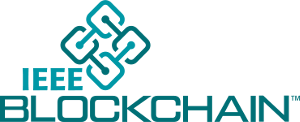

 Dr. Raymond Forbes
Dr. Raymond Forbes Dr. Alex Norta
Dr. Alex Norta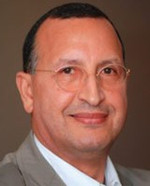 Latif Ladid
Latif Ladid Professor Miguel Pupo Correia
Professor Miguel Pupo Correia Simon Barducci
Simon Barducci Arturs Kempelis
Arturs Kempelis Dr. Andrejs Romanovs
Dr. Andrejs Romanovs Matthew Doty
Matthew Doty Ihor Vlasov
Ihor Vlasov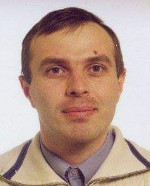 Nicolae Goga
Nicolae Goga Ramona Cristina Popa
Ramona Cristina Popa Joaquín Lago Pérez
Joaquín Lago Pérez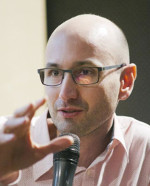 Emmanuel Bertin
Emmanuel Bertin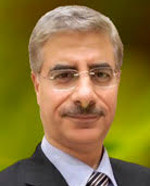 Khaled Salah
Khaled Salah Anne Veerpalu, PhD
Anne Veerpalu, PhD Dr. Cyril Onwubiko
Dr. Cyril Onwubiko Anna-Maria Osula
Anna-Maria Osula Michael Kolain
Michael Kolain